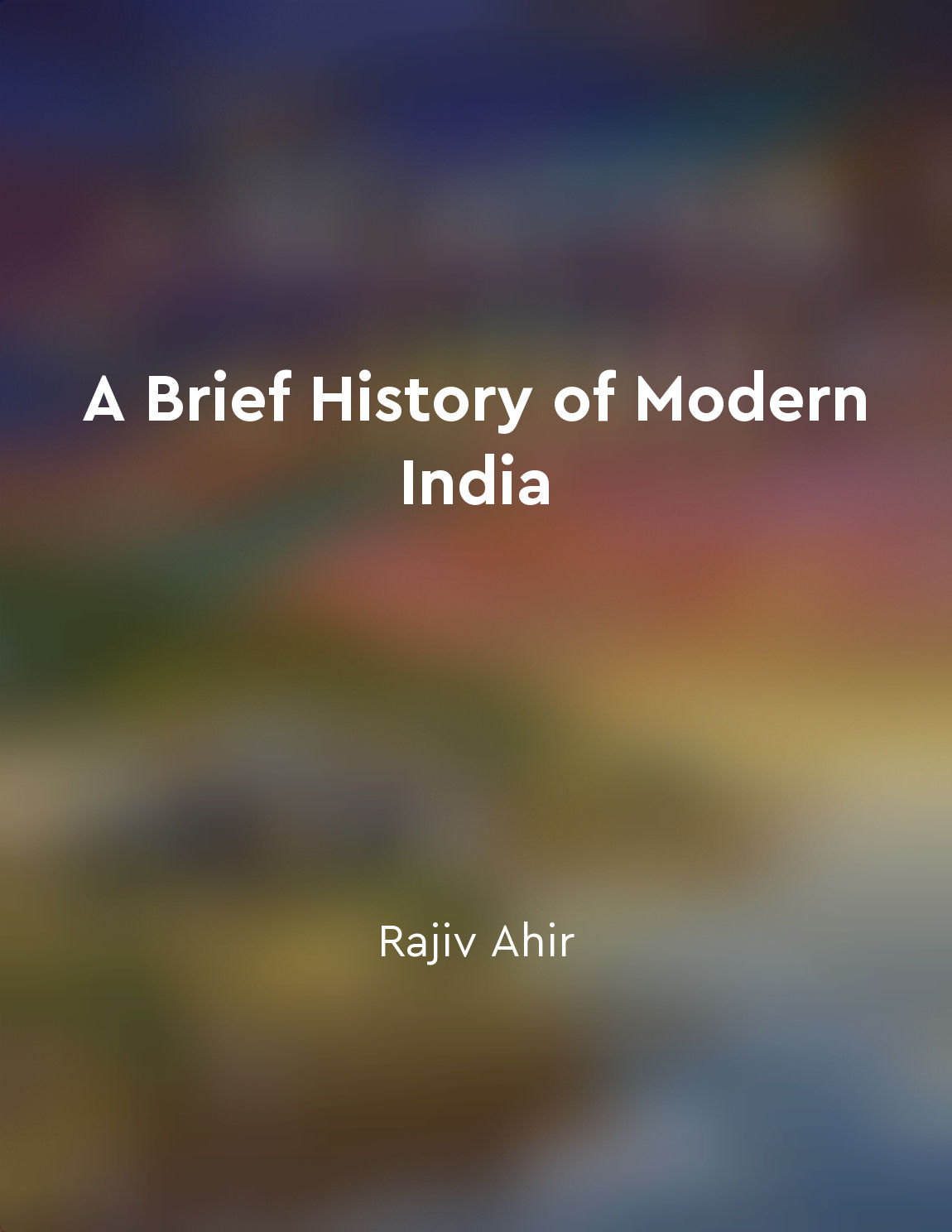Postindependence challenges in India from "summary" of A Brief History of Modern India by Rajiv Ahir
After gaining independence in 1947, India faced numerous challenges that needed to be addressed in order to build a strong and stable nation. One of the most pressing challenges was the issue of partition, which resulted in widespread violence and displacement of populations. Millions of people were forced to migrate to either India or Pakistan, leading to communal tensions and conflict. Another major challenge was the task of nation-building in a country that was deeply divided along religious, linguistic, and cultural lines. The leaders of independent India had to work towards creating a sense of national identity and unity among a diverse population. This required efforts to promote secularism, democracy, and social harmony. Economic challenges were also significant in post-independence India. The country was left impoverished by centuries of colonial rule, and the new government had to address issues such as poverty, unemployment, and lack of industrial development. The agrarian sector was in need of reform, and land redistribution was a key priority to address the inequalities in land ownership. Furthermore, India faced external challenges from neighboring countries, particularly Pakistan and China. The unresolved Kashmir issue led to multiple conflicts between India and Pakistan, while the border dispute with China resulted in the Sino-Indian War of 1962. These conflicts posed a threat to India's security and territorial integrity. In addition to these challenges, India also had to navigate the complexities of international relations in the post-independence era. The country had to assert its independence and neutrality in the midst of the Cold War rivalry between the United States and the Soviet Union. India's policy of non-alignment sought to maintain friendly relations with both superpowers while pursuing its own interests. Despite these challenges, India made significant progress in various fields in the post-independence period. The country established a democratic political system, a robust education system, and a diverse cultural landscape. Economic reforms in the 1990s opened up new opportunities for growth and development, leading to India's emergence as a major global player in the 21st century.Similar Posts
South Asia's art and architecture showcase its rich heritage and craftsmanship
The art and architecture of South Asia stand as a testament to its rich heritage and the unparalleled craftsmanship of its arti...

India has a long history of military conflicts
The annals of Indian history are replete with tales of military conflicts that have shaped the destiny of the subcontinent. Fro...

Wars have shaped India's identity and character
India's identity and character have been profoundly influenced by a series of wars that have been fought on its soil over the c...
Nehru's leadership postindependence guided India towards progress
After India gained independence in 1947, Jawaharlal Nehru became the first Prime Minister of the country. Nehru's leadership wa...

